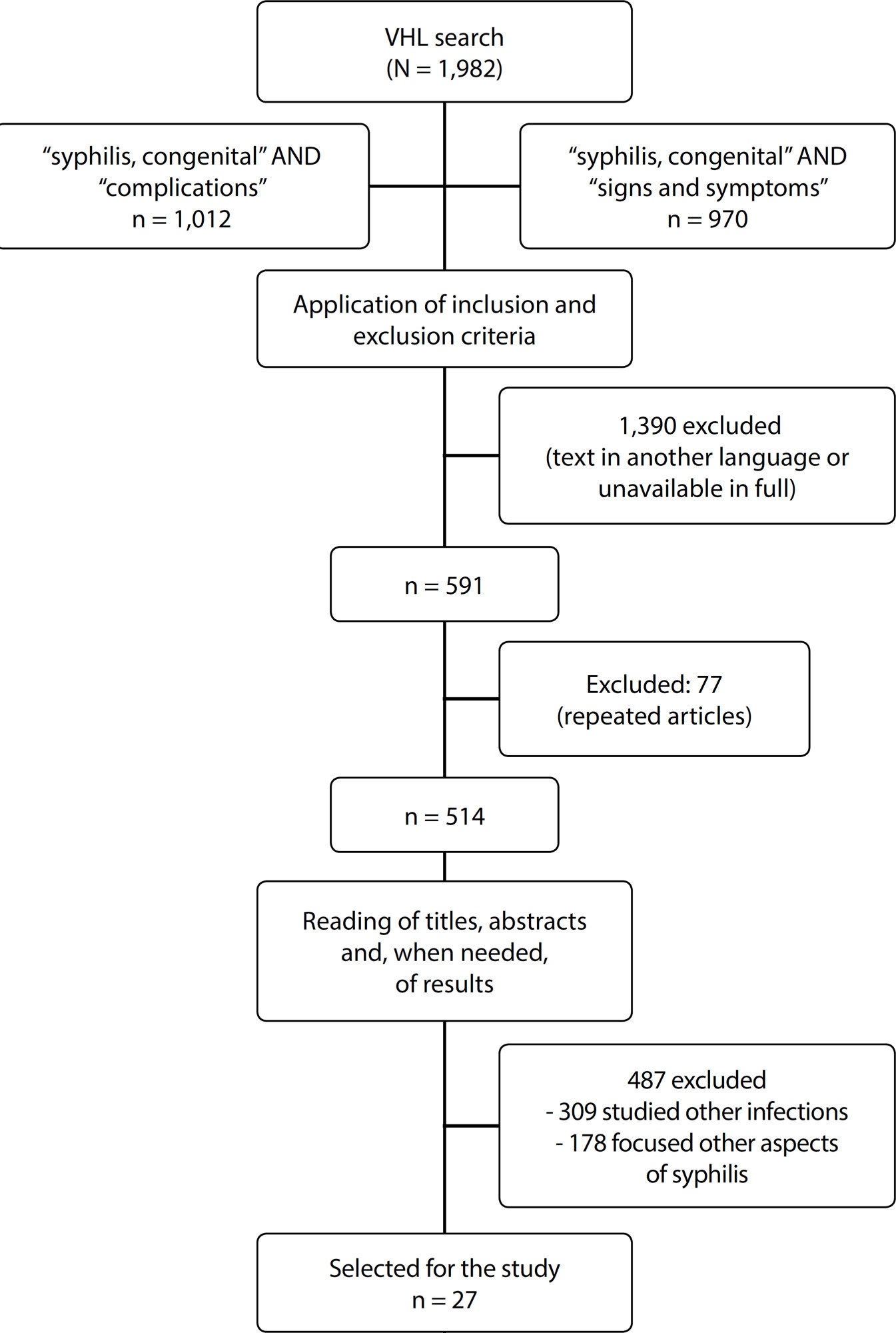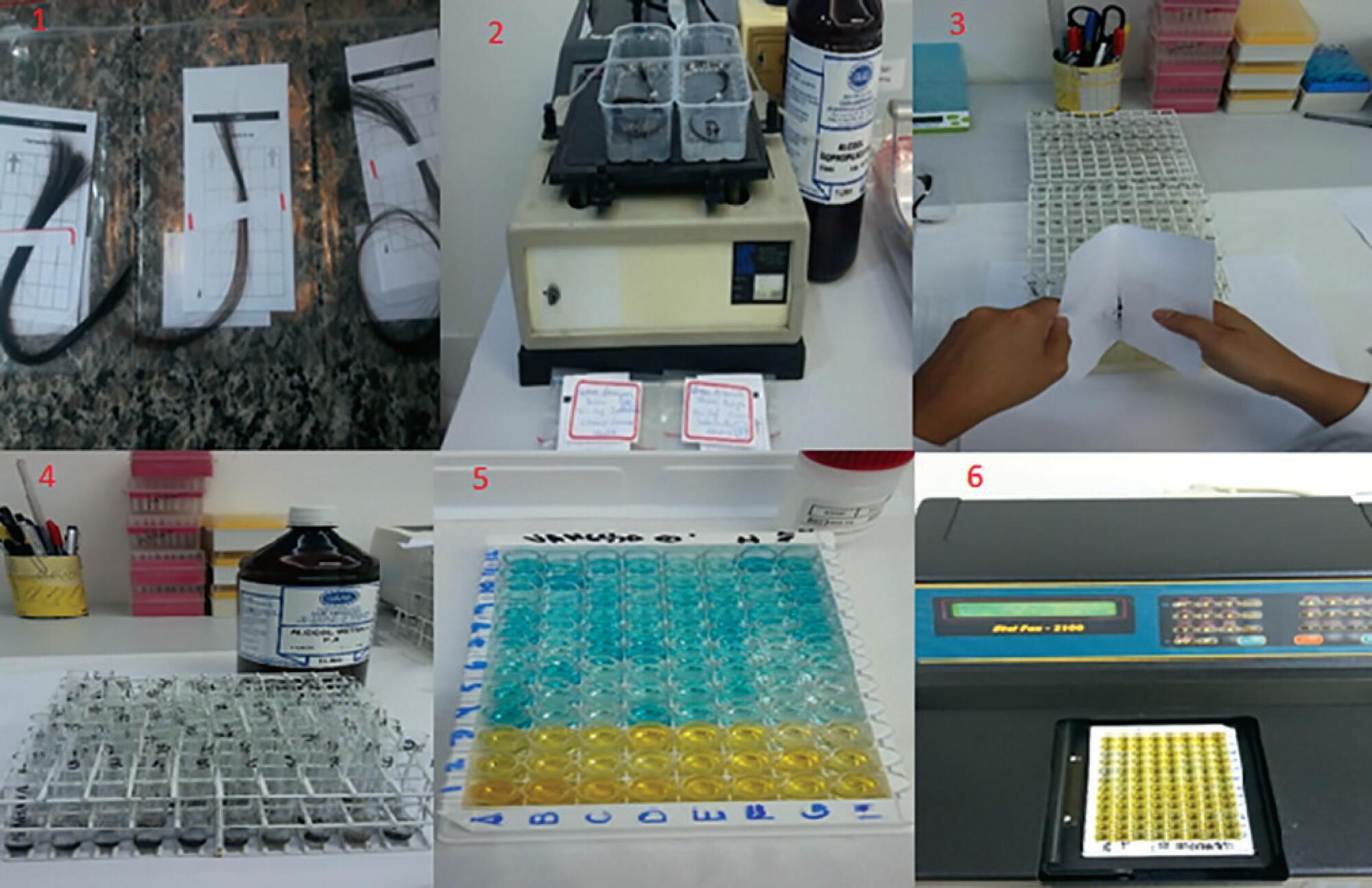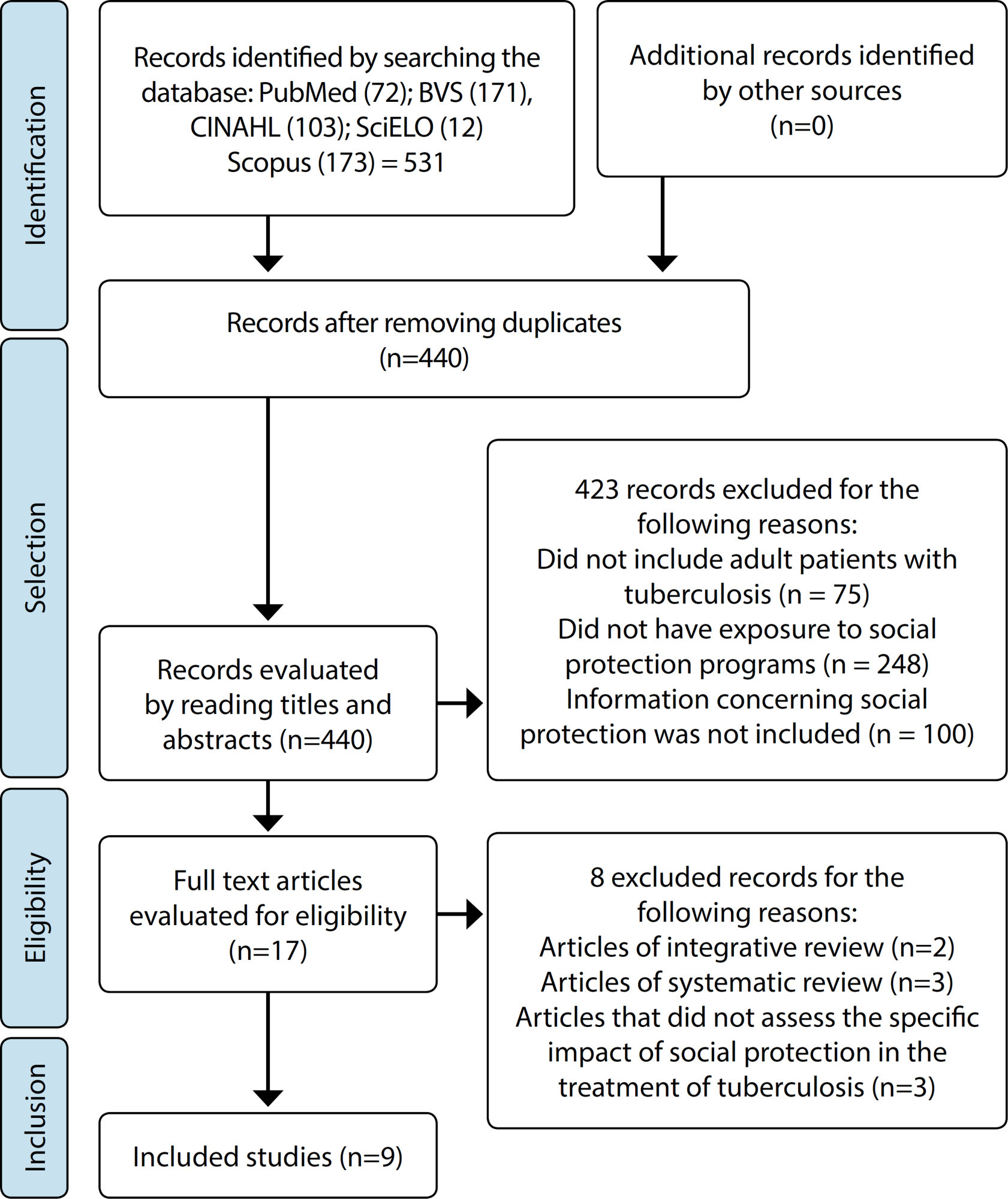-
REFLECTION
Research lines in nursing: phylosophical and epistemological highlights
Revista Brasileira de Enfermagem. 2015;68(4):723-729
01-01-2015
Abstract
REFLECTIONResearch lines in nursing: phylosophical and epistemological highlights
Revista Brasileira de Enfermagem. 2015;68(4):723-729
01-01-2015DOI 10.1590/0034-7167.2015680421p
Views0See moreRESUMEN
Objetivo:
elucidar destaques filosóficos y epistemológicos mediante consideraciones en favor de la casualidad de cuestiones en el interés de la Enfermería.
Método:
es fundamentado en las proposiciones teóricas de Johannes Hessen y de otros autores consagrados.
Resultados:
clareamiento de aspectos sustantivo e implicaciones adjetivas no sólo el interés de la investigación, resaltando los significados esenciales del asunto coincidido con las elaboraciones de disertaciones y tesis (Maestría y Doctorado de Enfermería).
Conclusión:
texto representa una contribución valiosa para esclarecer mejor detalles de la construcción del conocimiento en la temática y problemática del asunto puesto en causa.
-
REVIEW
Using the theory of meaningful learning in nursing education
Revista Brasileira de Enfermagem. 2015;68(4):713-722
01-01-2015
Abstract
REVIEWUsing the theory of meaningful learning in nursing education
Revista Brasileira de Enfermagem. 2015;68(4):713-722
01-01-2015DOI 10.1590/0034-7167.2015680420i
Views0See moreABSTRACT
Objective:
to synthesize the scientific literature about the Theory of Meaningful Learning in the process of teaching and learning in nursing.
Method:
this is an integrative review conducted in the databases MEDLINE, LILACS, SciELO, BDENF and CINAHL with studies addressing the subject or aspects of the theory of meaningful learning of David Ausubel. Ten studies were included, from which six were written in Portuguese and four in English, published from 1998 to 2013.
Results:
five studies used the theory of meaningful learning, four studies cited Ausubel as the author of this theory and only two studies followed the framework for the application of the theory completely. There are only a few studies on this subject and those which explore it are not correlated with Ausubel’s theory.
Conclusion:
it is necessary to break with the dichotomy between theory and practice and promote the articulation of content with action, introducing the student as the author of their own knowledge.

-
REVIEW
Nursing scientific production on health promotion, chronic condition, and aging
Revista Brasileira de Enfermagem. 2015;68(4):705-712
01-01-2015
Abstract
REVIEWNursing scientific production on health promotion, chronic condition, and aging
Revista Brasileira de Enfermagem. 2015;68(4):705-712
01-01-2015DOI 10.1590/0034-7167.2015680419i
Views0See moreABSTRACT
Objective:
to characterize the scientific production of Postgraduate Programs Nursing in Brazil on health promotion with a focus on elderly people with chronic conditions in the period from 2006 to 2010.
Method:
integrative research developed by searching for dissertations and theses in the database of the Center for Nursing Studies and Research of the Brazilian Nursing Association published in the period from 2006 to 2010 and which focused on health promotion for elderly people with chronic conditions.
Results:
five themes emerged: “Living with the disease”; “Technologies of care”, “Potential for self-care” “Psycho-spiritual dimension”, and “Family caregiver”.
Conclusion:
it was possible to identify nursing care as a key element to promote the health of elderly people and make them more independent in their care so as to live with their limitations or disabilities, even when affected by chronic diseases.

-
RESEARCH
Longevity according to life histories of the oldest-old
Revista Brasileira de Enfermagem. 2015;68(4):697-704
01-01-2015
Abstract
RESEARCHLongevity according to life histories of the oldest-old
Revista Brasileira de Enfermagem. 2015;68(4):697-704
01-01-2015DOI 10.1590/0034-7167.2015680418i
Views0See moreABSTRACT
Objective:
to interpret life histories of the oldest-old in a community, grounded on the perspective of the Active Aging and Life Course.
Method:
this is a qualitative research. Participants included twenty seniors 80 years and older, users of a Basic Health Unit. Life histories were collected and analyzed according to the proposition of the Autobiographical Narrative Interview.
Results:
during the analytic process, elements found in the elders’ present and past arose, contributing to the development of a theoretical model: “Building longevity along the life course.”
Conclusion:
longevity is rooted in the past, strongly infl uenced by the family culture and life course; assumptions of the Active Aging are more meaningful in the informants’ present trajectory. The content of the narratives pointed to new possibilities of Gerontology Nursing intervention in Primary Care, aiming at health promotion and intervention, specially grounded on the respect to the oldest-elders’ culture.

-
RESEARCH
Accuracy in inference of nursing diagnoses in heart failure patients
Revista Brasileira de Enfermagem. 2015;68(4):690-696
01-01-2015
Abstract
RESEARCHAccuracy in inference of nursing diagnoses in heart failure patients
Revista Brasileira de Enfermagem. 2015;68(4):690-696
01-01-2015DOI 10.1590/0034-7167.2015680417i
Views0See moreABSTRACT
Objective:
to determine the accuracy of nursing diagnoses of fatigue, intolerance to activity and decreased cardiac output in hospitalized HF patients.
Method:
descriptive study applied to nurses with experience in NANDA-I and/or HF nursing diagnoses. Evaluation and accuracy were determined by calculating effi cacy (E), false negative (FN), false positive (FP) and trend (T) measures. Nurses who showed acceptable inspection for two diagnoses were selected.
Results:
the nursing diagnosis of fatigue was the most commonly mistaken diagnosis identifi ed by the nursing evaluators.
Discussion:
the search for improving diagnostic accuracy reaffi rms the need for continuous and specifi c training to improve the diagnosis capability of nurses.
Conclusion:
the training allowed the exercise of clinical judgment and better accuracy of nurses.
-
RESEARCH
Direct cost of development and documentation of the nursing process
Revista Brasileira de Enfermagem. 2015;68(4):683-689
01-01-2015
Abstract
RESEARCHDirect cost of development and documentation of the nursing process
Revista Brasileira de Enfermagem. 2015;68(4):683-689
01-01-2015DOI 10.1590/0034-7167.2015680416i
Views0See moreABSTRACT
Objective:
identify the average direct cost (ADC) of the activities performed by nursing professionals in the nursing process development and documentation at the medical clinic of a teaching hospital.
Method:
1040 activities were observed and the ADC was calculated by multiplying the time spent by professionals by the unit cost of direct labor.
Results:
the ADC of patient admission was R$ 55.57 (SD=19.44); among the activities of patient follow-up, the assessment phase documentation had the most significant ADC (R$ 17.70 – SD=14.60); the ADC of descriptive records corresponded to R$ 1.21 (SD=1.21) and the ADC of the nursing team for shift change was R$ 54.23 (SD=28.95).
Conclusion:
the study promotes visibility of the work performed by nursing professionals in the development of the nursing process, providing financial data to ensure consistent arguments for proper resources to its feasibility.
-
RESEARCH
Health status and mental health in patients after percutaneous coronary intervention
Revista Brasileira de Enfermagem. 2015;68(4):676-682
01-01-2015
Abstract
RESEARCHHealth status and mental health in patients after percutaneous coronary intervention
Revista Brasileira de Enfermagem. 2015;68(4):676-682
01-01-2015DOI 10.1590/0034-7167.2015680415i
Views0See moreABSTRACT
Objective:
to assess the association between perceived health status and the mental health of patients submitted to percutaneous coronary intervention after hospital discharge.
Method:
a quantitative and cross-sectional study involving 101 participants. The following instruments were used: a sociodemographic and clinical characterization instrument, the Medical Outcomes Study 36-Item Short-Form Health Survey (SF-36), and the Hospital Anxiety and Depression Scale (HADS). Participants were divided into three groups: no anxiety and no depression (G1); anxiety or depression (G2); and both (G3). The ANOVA test was used for the intergroup comparison of means on the SF-36 domains.
Results:
There was an association between perceived health status and mental health. The participants in G1 presented higher scores in all SF-36 domains in comparison with participants in G2 and G3.
Conclusion:
Participants with no anxiety and depression presented better-perceived health status in comparison with those with anxiety or depression, or both.
-
RESEARCH
Analysis of the decision-making process of nurse managers: a collective refl ection
Revista Brasileira de Enfermagem. 2015;68(4):668-675
01-01-2015
Abstract
RESEARCHAnalysis of the decision-making process of nurse managers: a collective refl ection
Revista Brasileira de Enfermagem. 2015;68(4):668-675
01-01-2015DOI 10.1590/0034-7167.2015680414i
Views0ABSTRACT
Objective:
to analyze the decision-making model adopted by nurses from the perspective of some decision-making process theories.
Method:
qualitative approach, based on action research. Semi-structured questionnaires and seminars were conducted from April to June 2012 in order to understand the nature of decisions and the decision-making process of nine nurses in position of managers at a public hospital in Southern Brazil. Data were subjected to content analysis.
Results:
data were classified in two categories: the current situation of decision-making, which showed a lack of systematization; the construction and collective decision-making, which emphasizes the need to develop a decision-making model.
Conclusion:
the decision-making model used by nurses is limited because it does not consider two important factors: the limits of human rationality, and the external and internal organizational environments that infl uence and determine right decisions.
Keywords:Decision Support PracticesNursingNursing Administration ResearchPractice ManagementProfessional CompetenceSee more
-
REVIEW
Complications, clinical manifestations of congenital syphilis, and aspects related to its prevention: an integrative review
Revista Brasileira de Enfermagem. 2021;74(4):e20190318
07-14-2021
Abstract
REVIEWComplications, clinical manifestations of congenital syphilis, and aspects related to its prevention: an integrative review
Revista Brasileira de Enfermagem. 2021;74(4):e20190318
07-14-2021DOI 10.1590/0034-7167-2019-0318
Views0See moreABSTRACT
Objectives:
to identify the scientific evidence about the clinical complications and manifestations of congenital syphilis and aspects related to its prevention.
Methods:
integrative review after a search in the databases LILACS and MEDLINE, carried out in March 2018, using the descriptors “syphilis, congenital”, “complications”, and “signs and symptoms”, leading to the selection of 27 researches.
Results:
the publications found were published from 1966 to 2017, and most of them were from Latin America and Africa. Negative outcomes, laboratory changes, and the clinical manifestations in congenital syphilis, whether early or delayed, were, respectively: low weight at birth, anemia, hepatosplenomegaly, and dental alterations. The lack of treatment of the pregnant women in the prenatal was the most common occasion in which the opportunity to prevent the complications of congenital syphilis was lost.
Conclusions:
the scientific evidences analyzed showed serious complications of congenital syphilis that could be avoided if early opportunities of diagnosing and treating the pregnant women are not lost during the prenatal.

-
ORIGINAL ARTICLE
Cultural adaptation of Infant Feeding Intentions Scale (IFI) for pregnant women in Brazil
Revista Brasileira de Enfermagem. 2020;73:e20190103
07-15-2020
Abstract
ORIGINAL ARTICLECultural adaptation of Infant Feeding Intentions Scale (IFI) for pregnant women in Brazil
Revista Brasileira de Enfermagem. 2020;73:e20190103
07-15-2020DOI 10.1590/0034-7167-2019-0103
Views0See moreABSTRACT
Objectives:
to translate and culturally adapt the Infant Feeding Intentions Scale for pregnant women in Brazil.
Methods:
methodological study that included stages of translation, synthesis, face and content validation, back translation and semantic assessment. In the face and content and semantic validation stages, we used the Content Validity Index for individual items and for the overall scale for clarity and representativeness.
Results:
nine (100.0%) experts participated in face and content validation, and the average index obtained was 85.0% for representativeness. In the semantic assessment, performed with 31 (100.0%) pregnant women, the tool was considered clear, obtaining an average index of 91.0%.
Conclusions:
the Brazilian version of the scale was considered representative and clear. After assessing psychometric properties, the scale is expected to be valid and reliable to assess maternal intention to breastfeed exclusively until the infant’s six months of life in different Brazilian settings.
-
ORIGINAL ARTICLE
Development, validation and application of clinical simulation scenarios for assessment of stomatherapy specialists
Revista Brasileira de Enfermagem. 2021;74(1):e20200360
03-24-2021
Abstract
ORIGINAL ARTICLEDevelopment, validation and application of clinical simulation scenarios for assessment of stomatherapy specialists
Revista Brasileira de Enfermagem. 2021;74(1):e20200360
03-24-2021DOI 10.1590/0034-7167-2020-0360
Views0ABSTRACT
Objectives:
to build and validate three clinical simulation scenarios and report the application with candidates for the specialist’s degree in stomatherapy.
Methods:
methodological study, building three scenarios and evaluation checklists; content validation with judges, using content validity index and Modified Kappa Coefficient; pre-test and application.
Results:
scenarios built based on nursing care for: 1. insufficiency and venous ulcer; 2. demarcation of intestinal stomia; and 3. Clean intermittent catheterization. In the content validation of the 24 items appreciated, 83%, 80%, and 92% were validated without change. In the pre-test, the objectives and checklists were adjusted. In the application, to standardize the evaluation, actors and evaluators were trained previously, and each candidate passed the three stations.
Conclusions:
scenarios built and with validated content, based on evidence and covering the three areas of stomatherapy. The pre-test allowed for adjustments in the scenarios, and the candidates achieved the expected objectives.
Keywords:Educational AssessmentNursing EducationPatient SimulationSimulation TrainingValidation StudiesSee more -
ORIGINAL ARTICLE
Management of home care by family caregivers to elderly after hospital discharge
Revista Brasileira de Enfermagem. 2020;73:e20200474
12-07-2020
Abstract
ORIGINAL ARTICLEManagement of home care by family caregivers to elderly after hospital discharge
Revista Brasileira de Enfermagem. 2020;73:e20200474
12-07-2020DOI 10.1590/0034-7167-2020-0474
Views0See moreABSTRACT
Objective:
To understand the management of home care by family caregivers of dependent elderly people after hospital discharge.
Methods:
Qualitative research guided by hermeneutics-dialectic, anchored in the theory of communicative action. Data collection took place using a semi-structured interview with 11 participants.
Results:
Two categories were constructed: Management of the many types of care by the caregiver and the relationship between family caregiver and health care network. Care and management actions carried out routinely cause major changes in the family caregiver’s life. He/she does not recognize planning, home care periodicity or support in required procedures.
Final Considerations:
The management of home care for dependent elderly people after hospital discharge is complex, involving physical and emotional overloads, as well as difficulties in getting support from health services. The planning shared between the health team and the family since the discharge is required, and the better visibility of the role of primary care when the patient is assisted by a home care service.
-
Sexuality is associated with the quality of life of the elderly!
Revista Brasileira de Enfermagem. 2021;74:e20201272
07-09-2021
Abstract
Sexuality is associated with the quality of life of the elderly!
Revista Brasileira de Enfermagem. 2021;74:e20201272
07-09-2021DOI 10.1590/0034-7167-2020-1272
Views0See moreABSTRACT
Objective:
to analyze the association between sexuality and quality of life of Brazilian elderly residents in the community.
Methods:
a cross-sectional study conducted with 477 Brazilian elderly. The data were collected between August and October 2020. We used the EVASI and WHOQOL-OLD (World Health Organization Quality of Life). Data analysis was performed with Mann-Whitney, Spearman and Kruskal-Wallis correlation tests, with Bonferroni post-hoc application when necessary, considering a 95% confidence interval.
Results:
there was a statistical association between all dimensions of sexuality and the general quality of life of the elderly (p<0.05).
Conclusion:
the stimulation of sexuality can be configured as an innovative and holistic strategy focused on the promotion of health and active aging, since this study found the association between sexuality and the general quality of life of elderly people.
-
ORIGINAL ARTICLE
Stress and cortisol levels among members of the nursing team
Revista Brasileira de Enfermagem. 2020;73:e20180953
06-01-2020
Abstract
ORIGINAL ARTICLEStress and cortisol levels among members of the nursing team
Revista Brasileira de Enfermagem. 2020;73:e20180953
06-01-2020DOI 10.1590/0034-7167-2018-0953
Views0See moreABSTRACT
Objective:
To analyze the characteristics of hospital nursing professionals with the presence of stress, and to associate this with capillary cortisol.
Method:
A cross-sectional, exploratory and correlational study, conducted in a hospital in São Paulo, Brazil. A total of 164 nursing professionals participated; the Perceived Stress Scale was administered, and hair samples were obtained for laboratory analysis. Data were entered into a Microsoft Excel spreadsheet (2010), and then into Microsoft Office and the R software, version 3.2.2.
Results:
High levels of capillary cortisol in 47% of participants suggest the presence of stress, but no statistical significance between cortisol and stress levels were found.
Conclusions:
Stress and capillary cortisol levels were indicative of stress among nursing professionals; however, no association between them was found, although the values found were above those recommended.

-
ORIGINAL ARTICLE
Functional health literacy in hypertensive elders at primary health care
Revista Brasileira de Enfermagem. 2019;72:266-273
12-05-2019
Abstract
ORIGINAL ARTICLEFunctional health literacy in hypertensive elders at primary health care
Revista Brasileira de Enfermagem. 2019;72:266-273
12-05-2019DOI 10.1590/0034-7167-2018-0897
Views0See moreABSTRACT
Objective:
to assess the relationship between inadequate functional health literacy and inadequate blood pressure control in older people with hypertension in Primary Health Care.
Method:
a cross-sectional study with sample calculated at 392. SAHLPA-18 tool was used for functional health literacy; blood pressure was measured; sociodemographic and clinical data were collected. Hierarchical logistic regression was used.
Results:
(high) inadequate blood pressure and (low) functional inadequate health literacy were present in 41.6% and 54.6% of the people, respectively. Factors associated with inadequate blood pressure were: inadequate functional health literacy, black-brown skin color, overweight-obesity, hypertension diagnosis time, non-adherence to exercise/diet, drug treatment. Schooling had no association with inadequate blood pressure
Conclusion:
hypertensive elderly people with inadequate health literacy were more likely to have inadequate blood pressure. Thus, health professionals need to value functional health literacy as a possible component to control blood pressure.
Search
Search in:
Nuvem de Tags
Aged (144) Atenção Primária à Saúde (239) COVID-19 (104) Cuidados de Enfermagem (269) Educação em Enfermagem (151) Educação em Saúde (139) Enfermagem (930) Estudos de Validação (131) Health Education (144) Idoso (208) Mental Health (149) Nursing (987) Nursing Care (306) Patient Safety (151) Primary Health Care (284) Qualidade de Vida (104) Quality of Life (106) Saúde Mental (145) Segurança do Paciente (150) Validation Studies (108)




